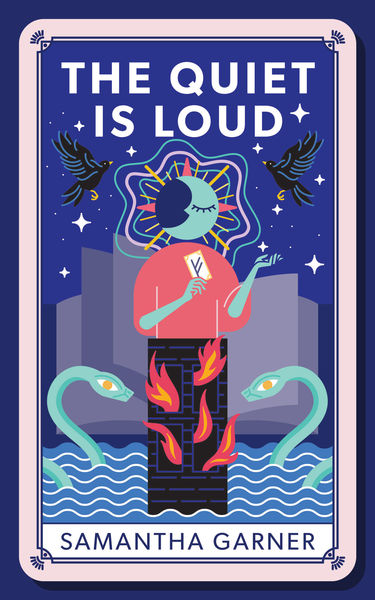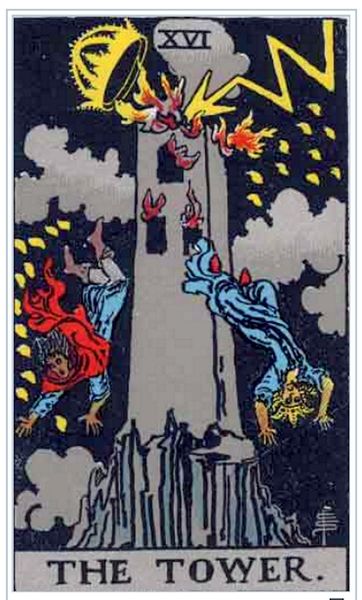Book Therapy: The Quiet is Loud
By Stacey May Fowles
“The more people we can have around us that who we can trust, the more we can work on finding ways to thrive in this world we live in.
The one that sometimes hates us.”
—Samantha Garner, The Quiet is Loud
Back when I was on maternity leave, I started frequenting the “crystal gift shop” within walking distance of my house.
Anyone who has spent large swaths of time alone with a very small baby knows that sometimes it’s really just about filling your days in the least complex way possible, and my repeated visits to this welcoming store certainly took care of that. With my sleeping daughter strapped to my chest, I could browse without pressure, and found the upbeat, chatty staff made me feel welcome and comfortable. It was exactly the diversion I needed, especially during a time where everything felt particularly uncomfortable.
The store always had something new and interesting on offer—of course thousands of crystals claiming all sorts of powers, but also candles and incense, oracle and tarot cards, and a library’s worth of books on the subject of the metaphysical and new age. Working with the Magic of Lunar Cycles. Healing Crystals for Health, Wealth, Love & Luck. Astrology Made Easy. I admit I was largely unfamiliar with most of the terrain the store covered, but after my own near miraculous experience (twenty-seven hours of labour) I was shedding my cynicism, finding myself more open and interested in things I may have previously dismissed.
On my visits I would often buy a few crystals—Green Aventurine, Calcite, Amethyst, Rose Quartz—and then slip them into my pocket to hold onto during those long daily walks. Sometimes I would put them by my bed while I slept (or didn’t sleep, thanks to the baby in question.) Sometimes I picked them because I thought they were pretty, sometimes because I quietly needed what they claimed to offer. I admit I was looking for small solace, a vague sense of direction, and the things in this tiny hopeful world on a busy downtown street seemed to offer that.
While it may be easy to mock someone who picks up some crystals, or tarot cards, or the horoscope section of the newspaper to find their way (I shamefully admit my past self likely would have made fun of my mat leave self for those visits) in retrospect it makes perfect sense that I sought unconventional guidance during a time of upheaval.
Like many on mat leave, I was lonely. I was lost. My identity felt like it was slipping away, and my usual support systems were coming up short. And so, I gravitated towards belief—a sense of belonging and a connection to something bigger than myself.
Freya Tanangco reads tarot cards at Oneira, a paid online service for those seeking the same kind of unconventional guidance I was likely looking for when I wandered into that crystal gift shop for the first time years ago.“Get answers from trusted visionaries with tarot, astrology, runes, and more,” the site boldly claims, allowing late night believers a virtual place to gather and chat, and a chance to request a private reading.
Your CanLit News
Subscribe to Open Book’s newsletter to get local book events, literary content, writing tips, and more in your inbox
Freya is also the protagonist of Samantha Garner’s debut novel, The Quiet is Loud, and a young woman with a fiercely guarded secret—she is a what is referred to as a “veker,” a label given to those with special, otherworldly abilities. Ever since she was a little girl Freya has been able to see the future via her dreams, predicting her mother’s tragic death and then using her skill to avert further disaster. Yet it’s a gift that she is diligently hiding from the bigoted masses—even her father, a famed and controversial author, despises those like her.
As Freya articulates it, “the threat of violence from the world at large wasn’t insignificant,” and so she continues to live in secret, carrying with her the anxiety of finally revealing her talent to the wrong person.
It is online tarot card reading that provides Freya an outlet, and the reclusive life she desires, but it also turns out to be a place where she’s offered a pathway out of hiding. There she meets Javi Nasr, a man whose own talent is connecting to other people’s abilities. When this mysterious stranger invites Freya to a meeting of STEP, or “Support Tools Empowering the Paradextrous,” her world cracks open, and she discovers a different way is possible—however scary the prospect may be.
“We’re just a group of people with skills who help others like us,” he tells her. “It’s nice to be around people who get it, you know?”
***
Despite initial reservations and the fear of being found out, Freya accepts this new and actually rather “normal” world of support. She also discovers there are many like her, each struggling to make their way under the threat of judgment.
“People like us, our skills are all—this is going to sound corny, but fuck it—beautiful. We’re beautiful aberrations.”
Freya’s first visit to STEP sets off a chain reaction of events, ultimately unraveling the life she knows and the comfort her reclusiveness offers. She forms a romantic connection with one of the group’s more passionate members, but his single-minded mission to pull the paradextrous into the limelight means that Freya must find a way to reckon with exposure on her own terms.
The Quiet is Loud is a novel about the mystical and supernatural, a genre tale about people with unbelievable powers beyond their own understanding. But it’s also a deeply thoughtful book about identity and the quest for true acceptance—especially in a world that encourages us to hate, hide, and fear who we are. Freya is ultimately on a search for a sense of self, and enduring the trial of coming into one’s own as a result.
Despite all this upheaval, Freya seems to understand painful growth and big change can be for the best—even welcomed. “I’d opened myself up to Javi, and how easily?” she recalls. “I had the feeling that our first meeting on Oneira, the one that’d blasted a hole in my life, was probably the best thing to happen to me in years.”
In one of The Quiet is Loud’s more poignant flashbacks, there is a depiction of a time before Freya uses her skills for professional Tarot. She gives her cousin Mary—one of the only people she really trusts—a casual reading. Asking her to pull a card from the deck, Mary reveals The Tower.
“Holy shit, that looks terrible!” Mary says. “It’s on fire! Are those people jumping into the water?”
Freya calmly explains that despite how dismal the card looks, it doesn’t necessarily mean bad things are coming. Instead The Tower suggests major transformation, a re-evaluation of beliefs, a breaking down of foundations that precede a rebuild—revelation or awakening.
The reading continues; “I pull The Tower card. I pull the Queen of Pentacles. I pull The Chariot. I pull The Moon. The images dance together, showing me a story I don’t understand. But as I speak, it comes together. The person I’m speaking to sends me a wave of relief, comfort. I have given them answers. Answers that come to me in dreams.”
Freya has spent so much of her life running from who she is that it feels like no accident that she finds true purpose in the tarot—a way to bring others comfort, to offer them guidance on their path, all while trying to discern her own. Once a place to hide, the Tarot gives Freya an open door, a way to escape on her own terms—to herself.
“Freya thought of The Tower. Major Transformation. The kind that can change a whole life.”
Book Therapy is a monthly column about how books have the capacity to help, heal, and change our lives for the better.
The views expressed by Open Book columnists are those held by the authors and do not necessarily reflect the views of Open Book.
Stacey May Fowles is an award-winning journalist, novelist, and essayist whose bylines include The Globe and Mail, The National Post, BuzzFeed, Elle, Toronto Life, The Walrus, Vice, Hazlitt, Quill and Quire, and others. She is the author of the bestselling non-fiction collection Baseball Life Advice (McClelland and Stewart), and the co-editor of the recent anthology Whatever Gets You Through (Greystone).






